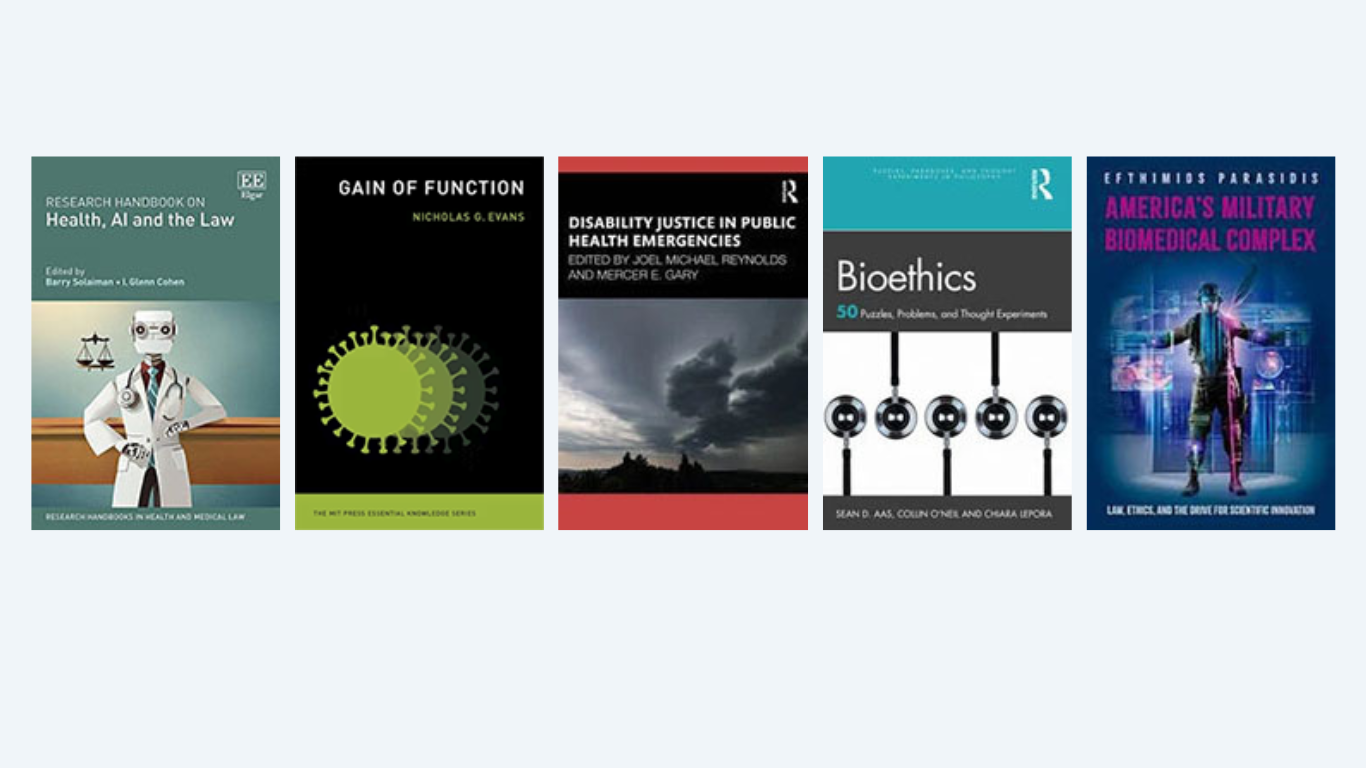As spring officially begins, many people will be searching for books to read on the porch during the first warm days of the season or during weekend getaways. With that in mind, we’re bringing back our “Bioethics Bookshelf” series to share over a year’s worth of titles written or edited by members of our Faculty Scholars community to help fill out your reading list.
Bioethics: 50 Puzzles, Problems, and Thought Experiments by Sean Aas, PhD, et al.
Faculty Scholar Alum Prof. Aas co-wrote this book that collects 50 real and fictionalized cases that probe issues in bioethics. Organized with introductory bioethics courses in mind, 50 Puzzles, Problems, and Thought Experiments explores classic cases in bioethics as well as emerging issues, including challenges around disability, social justice, and the practice of medicine in a diverse and globalized world.
Research Handbook on Health, AI and the Law co-edited by I. Glenn Cohen, JD
Today, the promise and challenges of AI touch virtually every industry and field, including health care. Faculty Scholar Program Committee Member and Alum Prof. Cohen and colleagues dive into the benefits and complications of AI—from the potential to diagnose diseases earlier and make hospitals more efficient to bias and privacy issues—as well as important legal and ethical issues that arise from its use in Research Handbook on Health, AI and the Law.
Gain of Function by Nicholas G. Evans, PhD
Prof. Evans, a Faculty Scholar Alum, has spent his career studying gain-of-function research—wherein a microbe is given new properties—and in his new book, he broaches the concerns about gain-of-function research, which reached a fever pitch in 2021 during the COVID-19 pandemic. Prof. Evans explains what gain-of-function research is, the ethics of risky research, and the future of gain of function.
America’s Military Biomedical Complex: Law, Ethics, and the Drive for Scientific Innovation by Efthimios Parasidis, JD
Faculty Scholar Alum Prof. Parasidis spearheads this tome that spans centuries of war and conflicts, exploring how the pursuit of achieving national security and military goals has often come at the expense of people’s health and well-being. In addition to reflecting on historical contexts, Prof. Parasidis offers recommendations based in principles of justice, fairness, and human dignity to guide new laws and policies that inform military science projects going forward.
Disability Justice in Public Health Emergencies co-edited by Joel Michael Reynolds, PhD
In this work, Faculty Scholar Prof. Reynolds and colleagues detail how public health emergency responses continue to fail the needs of disabled people. The 11-chapter Disability Justice in Public Health Emergencies connects disability scholarship with public health and disaster ethics to chart a path for more equitable disaster planning and better care for not only disabled people, but for all people, in the future.
Need more book recommendations? Check out previous installments of our “Bioethics Bookshelf” series here and here with even more great reads from our Faculty Scholars community that you may have missed.
